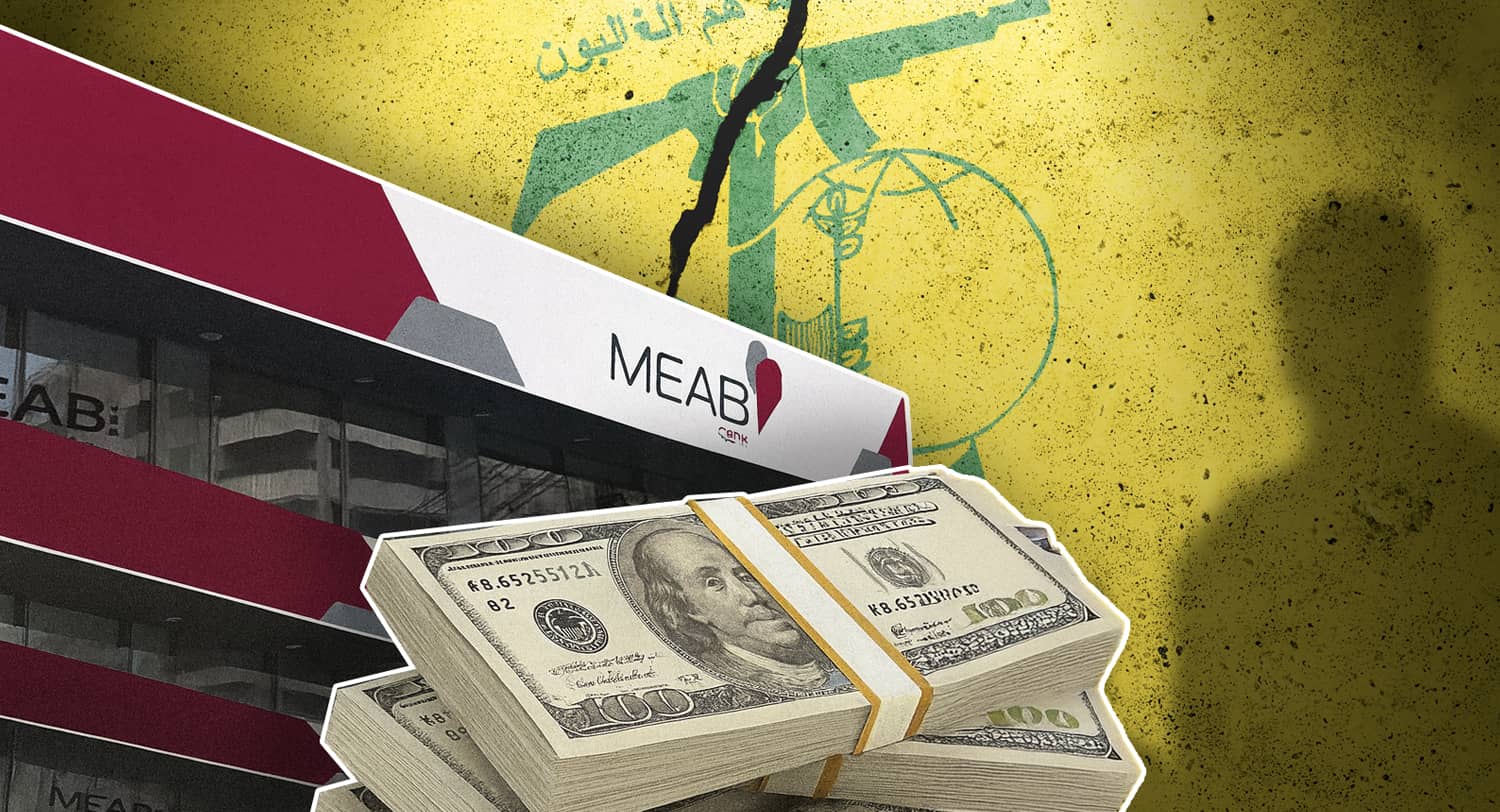Hizbullah has long treated Lebanon’s financial system as its personal bank vault — laundering funds, moving money through shell companies, and using quasi-banks like Al-Qard al-Hasan, a US-sanctioned entity, to keep its financial empire humming. But on July 15, something remarkable happened: Lebanon finally pushed back.
The country’s central bank banned financial institutions from dealing with Al-Qard al-Hasan. The decision came just days after a meeting of the international Law Enforcement Coordination Group, where officials from nearly 30 countries gathered to improve global efforts to dismantle Hizbullah’s financial networks. The United States took the lead ahead of the meeting by sanctioning seven Al-Qard al-Hasan officials, and a front company tied to the group.
One of Hizbullah’s most important financial enablers was conspicuously absent from that list: Middle East and Africa Bank (MEAB) and its chairman, Ali Hejeij. They should be next.
MEAB is not a fringe player. It’s one of Lebanon’s largest banks by deposits. Its co-founder, Kassem Hejeij, was sanctioned by the US Treasury Department in 2015 for providing material support to Hizbullah. Days later, his son Ali Hejeij took over as chairman, and MEAB claimed that Kassam Hejeij would have “no relationship whatsoever or ownership interest in MEAB.” That, of course, was a lie.
In 2017, Kassem Hejeij reportedly bragged that “turning the bank over to Ali changes nothing because me and my son are one and he is following my orders.” Years later, he reportedly maintained an office at the bank.
Meanwhile, MEAB’s role in financing Hizbullah has grown more apparent. In 2020, the hacker collective SpiderZ leaked internal Al-Qard al-Hasan documents that revealed MEAB held accounts for it and processed its transactions. A lawsuit filed in US federal court by victims of Hizbullah terror attacks goes further, alleging that MEAB helped move tens of millions of dollars through US correspondent accounts and Lebanese money exchangers.
MEAB appears to be using American banks to move Hizbullah money. In December 2024, the Federal Deposit Insurance Corporation (FDIC) penalized Kansas-based CBW Bank for due diligence failures related to its inadequate illicit finance compliance regime. After asserting in November 2024 that “there was no evidence to suggest the Bank or any Bank employee engaged in any deliberate misconduct, or recklessly or willfully disregarded any [anti-money laundering] risk,” CBW Bank later challenged the constitutionality of the agency’s enforcement authority in June this year. That case is still pending.
Publicly available evidence strongly suggests that one of its customers, referred in the FDIC action as “Customer E,” was MEAB. This means that despite the obvious warning signs from public reporting and the 2015 designation of MEAB’s co-founder and former chairman, CBW Bank may have allowed one of Hizbullah’s key financial vehicles to “transmit hundreds of millions of dollars” in international wire services, according to the FDIC action.
That episode should ring alarm bells not only about MEAB, but about systemic gaps in the US compliance regime. If a Hizbullah-linked bank can move money through the US financial system in plain sight, then current safeguards are not working. And the costs are not abstract. Without Al-Qard al-Hasan and banks like MEAB, Hizbullah couldn’t fund attacks on innocent civilians, Israeli soldiers, or American armed service members. Israeli jets targeted Al-Qard al-Hasan’s facilities in Lebanon earlier this year, another indication that this de facto bank is a strategic node in Hizbullah’s terror infrastructure.
Still, under Ali Hejeij’s leadership, MEAB continues to prop up Hizbullah and its de facto bank. Through its correspondent relationships, shadow accounts, and systemic money laundering, the Hejeij family is preserving MEAB’s role as a financial lifeline to one of the world’s most dangerous terrorist organizations.
That makes both the bank and its chairman clear candidates for US sanctions.
Washington should welcome Lebanon’s decision to ban banks from doing business with Al-Qard al-Hasan, a recognition that this entity is a threat to the country’s stability. The US should now lead the way with MEAB and Ali Hejeij.

